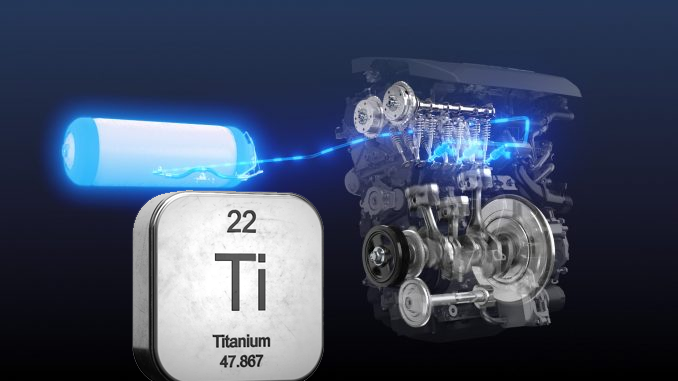2025-09-29 11:56:42
Titanium, the resource of the future.
Titanium is an extreme metal ideal for aerospace engineering and medical implants.
Its strength comes from its natural ability to resist corrosion and oxidation, meaning that it retains its power even when exposed to extreme temperatures or harsh chemicals. 
While it's the ninth most abundant element in the Earth's crust, finding it in its pure,
usable form is extremely difficult, making it significantly more expensive than common structural metals like steel or aluminum.
Titanium dioxide is the oxidized form of titanium. It is naturally occurring in mineral form. It is added to cosmetics, as well as paint, paper, food, plastics, inks, toothpaste, and other products.
But we can convert titanium dioxide (TiO2) to titanium (Ti) and use all advantages of this magic metal.
The high cost of titanium stems from a combination of complex, energy-intensive processing, limited production capacity, and demanding fabrication requirements.
But new methods are emerging in the production of titanium alloys.
TiO2 can be converted into titanium metal and subsequently into titanium alloys through molten salt electrolysis, such as the FFC Cambridge process, or via an electronically mediated reaction using a molten salt reductant. These processes offer an alternative to the Kroll process, producing high-purity titanium powder by directly reducing the TiO₂ without the need for intermediate steps like chlorination.
Nanotwinned titanium
Most recently, Minor and Robert Ritchie, professor of materials science and of mechanical engineering, developed a pioneering bulk processing method to make pure titanium that is less expensive and yields a metal with greater tensile strength and ductility.
Titanium-based alloys are studied and used to create metal hydrides, which store hydrogen in a solid form. These systems offer a safer alternative to bulky, pressurized hydrogen gas cylinders and can be integrated into a vehicle's system to improve efficiency.
Also titanium electrodes are used in processes like solar-assisted electrolysis to produce hydrogen from water.
As we look to the future, the potential for titanium to revolutionise industries and enhance everyday life is vast. The ongoing research and development in titanium technologies will continue to drive innovation and expand the material's applications, solidifying its position as a vital resource for the future.
https://engineering.berkeley.edu/news/2022/05/a-new-time-for-titanium/
https://pubchem.ncbi.nlm.nih.gov/compound/Titanium-dioxide
https://www.tronox.com/products/titanium-dioxide/
https://www.intechopen.com/chapters/68769
https://global.toyota/pages/global_toyota/mobility/technology/toyota-technical-review/TTR_Vol66_E.pdf
|

